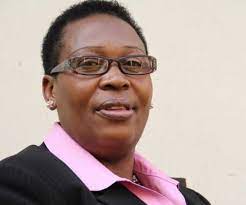National languages celebrated
Share

HARARE (New Ziana) – THE main activities commemorating International Mother Language Day, on Monday (February 21) took place in Matabeleland North alongside a one-hour radio presentation.
Headlining the activities was the National Arts Council (NAC), fronted by its Director, Nicholas Moyo, who dwelt on the importance of promoting diversity and linguistic respect.
The core of his message this year was on encouraging learning of more indigenous languages, to enable a Zimbabwean at any given time to converse comfortably, in at least three official languages, resulting from promotion of local languages.
His call is informed by precedents in Kenya and South Africa, where the Sub-Saharan countries have made strides and, where languages are being used in developing nations.
But this year in Zimbabwe, the celebrations took place against the backdrop of several notable deliverables in the promotion of mother languages.
A Shona poem was sent to Bangladesh where it was read on Monday as part of the commemorations.
Last November (2021), President Emmerson Mnangagwa commissioned the National Language Institute (NLI) at the Midlands State University (MSU).
Professor Wiseman Magwa (above) heads the NLI as its Executive Director.
The NLI’s ultimate goal is to “intellectualise” Zimbabwe’s indigenous languages so that they are used as languages of instruction.
The establishment and commissioning of the NLI is a development that has given it a wider mandate in Zimbabwe’s national discourse in technology and scientific domains.
NLI provides research and consultancy services for all the 16 official languages.
Key deliverables in promoting mother languages are evident in the work so far conducted by the NLI in translating the Constitution into all languages, as well as the National Development Strategy (NDS)1 document into all the official languages.
Another key deliverable in promoting mother languages has been the establishment and launch of community radio stations, with the recent one being Avuxeni in Chiredzi for the Tsonga or Shangaani-speaking communities.
Avuxeni Community Radio Station, whose launch was presided over by the Minister of Information, Publicity and Broadcasting Services, Senator Monica Mutsvangwa, less than a fortnight ago, is one of 14 licensed community radio stations. The event coincided with commemorations marking World Radio Day, celebrated on February 13.
According to Professor Magwa, part of efforts by Zimbabwe to ratify UNESCO’s motion of multilingualism is the drive to license many language-based community radio stations, to enhance the use of the diversity of languages that Zimbabwe has.
“The failure to recognise multilingualism in society, subsequently leads to serious linguistic crises, expected to create layers of inequality, marginalisation and exclusion,” explained in a message marking International Mother Language Day.
In ratifying UNESCO declarations on language, he observes, Zimbabwe has gone a step further to craft an inclusive language policy and Bill for the first time in history. He sees this as “a progressive move towards the safeguarding and revitalisation of mother tongues”.
The United Nations Educational, Scientific and Cultural Organisation (UNESCO), set February 21 of every year as a day for commemorating mother languages. This year’s theme, ‘Using technology for multilingual learning: Challenges and opportunities’ is quite profound in the sense that it acknowledges the use of technology in promoting multilingualism in education and socio-economic development.
Professor Magwa said the theme is inherently critical in that multilingualism enhances tapping from the full potential of humanity, since language is both a tool of communication and thought-processing.
“In view of this, this year’s theme calls for innovative strategies as interventions towards the digitisation of languages. This year’s edition hinges on providing techno-scientific solutions to challenges resulting from lockdowns, travel restrictions and bans in a bid to reduce human contact,” he explained in his message.
The period 2021-2022 saw a series of lockdowns due to the prevalence of the Covid-19 pandemic, hence the call by UNESCO to harness the efficacy of technology to facilitate distant multilingual communication.
UNESCO’s objectives are in tandem with Zimbabwe’s Constitution Amendment Act No. 20 (ACT 2013): (6) as promulgated by President Emmerson Mnangagwa in his mantra: ‘… not leaving anyone behind’ (NDS 2020-2025), according to Professor Magwa.
Citizens implore the government and relevant stakeholders to go a step further and create a framework that is inclusive and allows learners to access education in their mother tongues.
“The Constitution,” Professor Magwa argues, “provides a firm foundation for the realization of the ideals of fostering multilingualism for inclusion in education and society and we must embrace these provisions as individuals as well as the entire nation.
.
“UNESCO’s celebration of International Mother Language Day calls on policy-makers, educators and families to scale up their commitment to multilingual, inclusive, techno-scientific and mother tongue education to advance recovery in the context of COVID-19.
“This escalates the achievement of the goals of the United Nations International Decade of Indigenous Languages (2022-2032) that places the mother language at the heart of native people’s development.”
When celebrating International Mother Language day citizens demonstrate how important languages are to issues of identity, thought processes, emotions, feelings and communication.
The commemoration of the International Mother Language Day is of great importance in that it insinuates the need to preserve, promote and use native languages in the linguistic landscape.
Putting everything aside to devote time and energy to celebrate languages is testimony of the pride that people derive from being a people of a language that has enabled native evolution since time immemorial.
Explains, Professor Magwa: “The existence on man-made pyramids, towers, aviation and ethno-physics are all evidence of the role of language in human thought- processes, where it mediates ethno-scientific ingenuities in different speech communities.
“Fostering multilingualism will enable all societal members to appreciate, value and respect mother tongues thereby promoting unity among global citizens. In addition to that, creating a multilingual environment stimulates individuals to enjoy their linguistic rights and tongues of their choice. This will uphold the pragmatics of the United Nations Declaration on the Rights of Indigenous People (1987; 2007).
“The promotion of multilingualism is a critical tool in promoting cultural and linguistic diversity as well as tolerance.”







